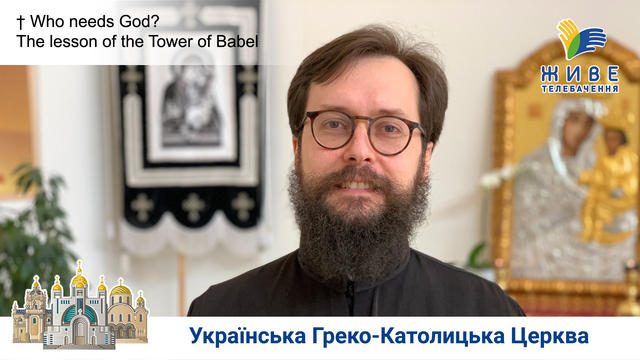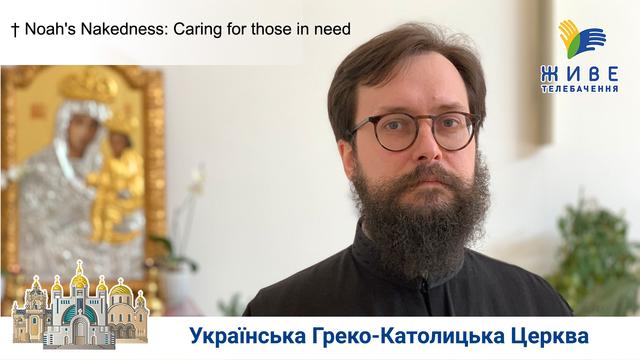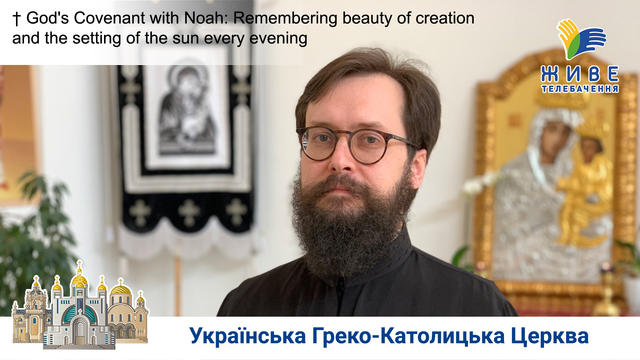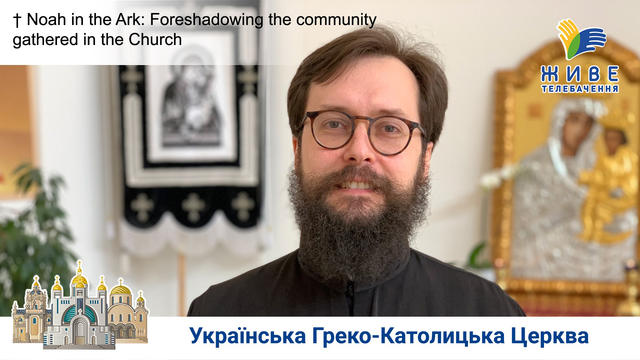Day 5: God’s Call to the Promised Land. Great Lent Retreat Online
Day 5: Friday, 27 March 2020
God’s Call to the Promised Land: The Story of Abraham
This week in our readings from the Book of Genesis we heard about the signs of God’s love for us through the rainbow and the sunset, the sacrifices that were made to God out of thanksgiving, and the ways in which human beings failed to remember God and His love for us. Today we end the fourth week of Great Lent with the reading from Genesis 12:1–7 about the call of Abraham and Sarah to the Promised Land:
[1] Now the LORD said to Abram, «Go from your country and your kindred and your father’s house to the land that I will show you. [2] And I will make of you a great nation, and I will bless you, and make your name great, so that you will be a blessing. [3] I will bless those who bless you, and him who curses you I will curse; and by you all the families of the earth shall bless themselves.» [4] So Abram went, as the LORD had told him; and Lot went with him. Abram was seventy-five years old when he departed from Haran. [5] And Abram took Sar’ai his wife, and Lot his brother’s son, and all their possessions which they had gathered, and the persons that they had gotten in Haran; and they set forth to go to the land of Canaan. When they had come to the land of Canaan, [6] Abram passed through the land to the place at Shechem, to the oak of Moreh. At that time the Canaanites were in the land.
[7] Then the LORD appeared to Abram, and said, «To your descendants I will give this land.» So he built there an altar to the LORD, who had appeared to him.
In this last passage from Genesis that we read this week, we see the fulfillment of God’s promises to His chosen faithful, a foreshadowing of the Good News that Mary, the Mother of God, receives from the Archangel Gabriel in the Annunciation, which many of you have celebrated a few days ago and others will celebrate in a few weeks. Regarding Abraham: St. Anthony the Great says that Abraham and Sarah’s hearts were ready to be guided by the Spirit of God and this is an example for us to follow, without hesitation (St. Anthony the Great, Letter 1). St. Augustine says that Abraham did the right thing: he believed God’s promise before God «paid up anything» because he knew God cannot lie (St. Augustine, Sermon 113 A.10). Didymus the Blind says that God’s promise to Abraham, that he would be the father of a great nation, was realized not just literally and historically because he had many descendants, but because his descendants were adorned with virtue, becoming a chosen people and a royal priesthood (Didymus the Blind, On Genesis 210.11; 1 Peter 2:9). Let us not forget: we are members of that chosen people and members of the royal priesthood of all believers by the virtue of our baptism in the death and resurrection of Christ!
As we conclude this week of retreats, I would like to thank all of you for participating and joining together in prayer. Please continue! And not just for as long we are all locked in our homes due to the coronavirus. Please continue to pray and meditate on the Word of God every day, no matter the time of year or the conditions outside in the world, whether we are locked in our cells or out in the world. Let God be our firm foundation and our guide! Let us pray without ceasing.
St. Basil the Great encourages us to do so, based on the example of the Prophet David:
«Then, because he [David] had been delivered from great danger, he sent up this prayer of thanksgiving to God who had rescued him. „I will bless the Lord at all times.“ Having escaped death, as if he were setting up norms for his life, he molded his soul to an exact manner of living, so that he ceased at no time from praise but referred the beginning of affairs, great and small, to God. „I will not think,“ he says, „that anything was done through my diligence nor happened through spontaneous chance, but, „I will bless the Lord at all times,’ not only in prosperity of life, but also in precarious times.“ The apostle, learning from this, says, „Rejoice always. Pray without ceasing. In all things, give thanks.“ (1 Thes 5:16–18; Basil the Great, Homilies 16)
Among the Sayings of the Desert Fathers on constant prayer, there are the words of Abba Benjamin:
«And when Abba Benjamin was dying, he quoted a text to his disciples, „Be joyful at all times, pray without ceasing, and give thanks for all things.“ He told them, „Do these things and you can be saved.“ (Benjamin, Sayings of the Fathers 4)
This is just one of the many short and helpful sayings of the Desert Fathers and Mothers, monks and nuns who try to do what is right, to love mercy, and to live humbly with our God (Micah 6:8).
One of the things we might have noticed this week was the frequent reference to monks and nuns. This was not my intention at first, but it soon became clear to me that the advice they have regarding prayer, sacrifice, and understanding the Word of God is an example for us, especially in a time when we must isolate ourselves and stay locked in our homes. As spiritual warriors who know how to combat evil even when it is invisible and everything around them seems calm and quiet, their example of spiritual struggle is a reassuring comfort.
But not all of them lived long ago or far away. We have many in our Church today, and some are also among the New Martyrs of our Church. They are martyrs not just because they suffered for God (cf. the Slavonic мученик), but more importantly because they bore testimony (cf. the Greek μάρτυς) to the love of God for us.
One of these New Martyrs who was also a monk that I would like to briefly mention is Archimandrite Klymentij Sheptytsky of Univ, brother of Metropolitan Andrey. A former prisoner during the times of the Soviet Union describes his encounter with Archimandrite Klymetij in a Kyiv prison during the period of the persecution of the Church: Archimandrite Klymentij «was tall, thin, with a long white beard, a little slender, with a cane. His movements were slow and calm, his face and eyes were friendly. He reminded me of St. Nicholas […] Before bedtime, Father Klymentij would approach the prison cell window, standing about one meter away (any closer was not allowed), leaning his hands on his cane, bowing his head and praying in a whispered voice.… In prison, the Archimandrite generously shared the humble packages that came from the nuns. One Easter, he received three blessed apples and gave them all out by halves to his fellow cellmates. With great trepidation, everyone consumed the gift, as if it were consecrated. And so we celebrated Easter. «(Спогади І. Кривуцького про перебування о. Климентія в Київській в’язниці, м. Черкаси, 8.09.1995, Archives of the Holy Dormition Univ Lavra).
Although we too might feel like prison inmates in our quarantine, and we might fear that our Easter might take place in the same way, celebrated only with our fellow cellmates over blessed apples or the remainder of whatever we have stocked up on our shelves at home, let us not lose hope. Let us also bear witness to the love of God for us and for the whole world!
When this is all over, I pray that we do not forget the lessons we have learned and are learning during this time of Great Lent and the particular difficulties of this year and its paradoxes… The paradox of being powerless in the face of a small virus, despite our technological advances; the paradox of the calm and beauty in nature, but the fear and uncertainty in our hearts; and the paradox of the Cross of Christ, which lies at the heart of our faith — death through life, heaven united with earth, God descending to humans, and humans rejoice with angels.
In the Life of St. Mary of Egypt, with which we began this week’s retreat, we heard that the monks would go out into the desert during the time of Great Lent to practice social distancing, enter into their hearts and pray to God. They would cancel most liturgical services and their monastery would be empty, except for one or two monks who stayed behind to serve the Liturgy there.
But the Life of St. Mary of Egypt goes on to say that, when the forty days were over, the monks who had survived Great Lent in the isolation of the desert wilderness would hurry back to the monastery for Palm Sunday, singing the following sticheron:
Today the grace of the Holy Spirit has gathered us together and we all take up Your cross and say: Blessed is He who comes in the name of the Lord! Hosanna in the highest!
Dear Brothers and Sisters in Christ!
May God favour us also to return from the wilderness and make us worthy also to celebrate Christ’s Passion, Death, Burial and Resurrection — and to do so with joy!
Christ is risen, dear brothers and sisters!



